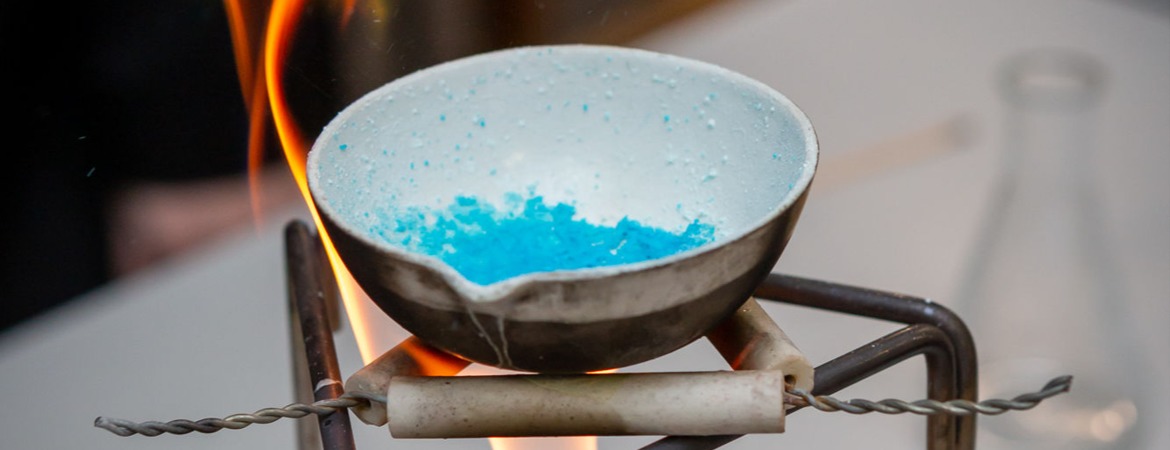- Home
- Curriculum
- Subject Information
- Science
Science
Experiment. Learn. Repeat.
Curiosity about the world - and what it is made of - is the foundation of science. Our Faculty nurtures that innate curiosity in students and provides inspiration beyond the curriculum: we open minds to the awe and wonder of the world around us and instil a lifelong love of learning.
Science at TLA
Science prepares students for future life, developing the transferable skills required for further study and rewarding careers: complex problem solving, critical thinking, emotional intelligence and resilience.
KS3
Students build up a body of key foundational knowledge and concepts in biology, chemistry and physics in line with the national curriculum. Students will explore a range of topics including particles, cells, energy, reproduction, forces and chemical reactions in year 7. During year 8 students increase their knowledge by focusing on the periodic table, nutrition, light and space, materials, electricity and ecology. Students in year 9 consider forces in action, reactivity, energetics, sound, biological systems and processes as well as photosynthesis and matter. Throughout KS3 students gain a deeper understanding of how to work scientifically so by the end of year 9 students will have gained considerable knowledge and developed important practical skills.
KS4
At KS4 students will follow either the combined science pathway which results in 2 GCSE grades or students may use one of their option choices to study triple science. Triple science students will look at some topics in more detail and may have additional topics to explore during their studies such as the topic of space in physics. Triple science students will be awarded 3 GCSE grades at the end of the course. Both combined science and triple science students will learn biology, chemistry and physics.
During biology lessons students will explore cell biology, organisation, infection and control, bioenergetics, homeostasis and response, inheritance, variation and evolution ending with the study of ecology.
Chemistry lessons will include the study of atomic structure, bonding, quantitative chemistry, chemical changes, energy changes, organic chemistry, chemical analysis, chemistry of the atmosphere and using the Earth’s resources.
Physics topics that all students will consider are energy, electricity, the particle model, atomic structure, forces, waves and magnetism.
Throughout KS4 students will be encouraged to develop the skill of working scientifically, so will have the opportunity to complete a range of practical activities in addition to those required by the exam board.
At the end of the GCSE course students will be required to complete 6 exams which include a mix of multiple choice questions, short answer questions and long answer questions.
KS5
For students opting to study A level biology there are 8 core topics: Biological molecules, cells, exchange of substances, genetic information, energy transfers, organisms response to change, genetics and ecosystems ending with the control of gene expression. Students will sit 3 exams at the end of the course that contain a mixture of short answer and essay questions. A separate endorsement of practical skills is awarded which is assessed by teachers and will be based on direct observation of students’ competency in a range of skills.
A level chemistry is based around 3 main topics: physical chemistry, inorganic chemistry and organic chemistry. Students will be required to sit 3 final exams which comprise multiple choice questions, short answer and long answer question. A separate endorsement of practical skills is awarded which is assessed by teachers and will be based on direct observation of students’ competency in a range of skills.
A level physics begins with core concepts which all students study including measurements and their errors, particles and radiation, waves, mechanics and materials, electricity, further mechanics, fields and their consequences and nuclear physics. Students will then go on to consider astrophysics as an optional module. There will be 3 exams at the end of the course which include multiple choice questions, short and long answer questions.
Implementation
Hours of lessons per fortnight for this subject:
- KS3: 5
- KS4: 8 (13 for triple students)
- KS5: 8
Exam board(s)
AQA GCSE Combined science Trilogy
AQA GCSE Biology
AQA GCSE Chemistry
AQA GCSE Physics
AQA A Level Biology
AQA A Level Chemistry
AQA A Level Physics
Facilities in the department
14 fully equipped science laboratories
Trip and Extra-curricular opportunities
Science club
Club teardown
Trip to recycling centre
Subject Contacts
| Name | Position | Email Address |
|---|---|---|
| Madeleine Newman | Director of Science | mnewman@tla.woodard.co.uk |



